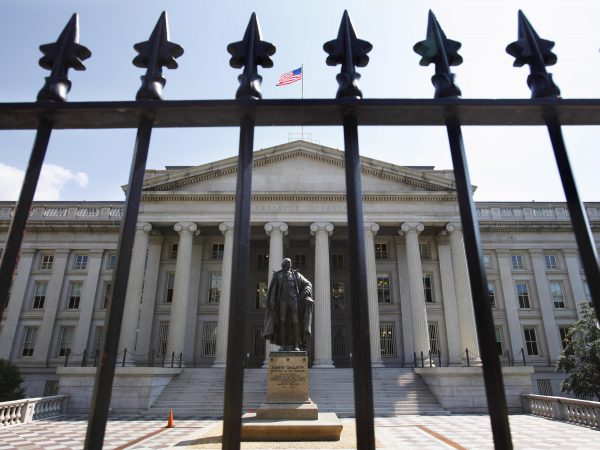
- Details
- By Levi Rickert
WASHINGTON — With a deadline looming to disburse CARES Act relief aid to tribes, lawyers representing 14 tribes will be in federal district court today in Washington to argue Congress never intended for Alaska Native Corporations (ANCs) to receive any part of the $8 billion allocated for American Indian tribes.
The U.S. Department of Treasury on Thursday took a different stand on the issue.
Just barely meeting a 5 p.m. deadline, lawyers for the Treasury Department filed a 26-page brief that argues the CARES Act makes the corporations, which were set up under a 1971 settlement among the United States, Alaska Natives and the state of Alaska, eligible for the funding.
Earlier Thursday, the Treasury Department determined the ANCs will be eligible for CARES Act funds, stating so in a document entitled “Coronavirus Relief Fund Payments to Tribal Governments.” The document reads in part:
“After consultation with the Department of the Interior, Treasury has concluded that Alaska Native regional and village corporations as defined in or established pursuant to the Alaska Native Claims Settlement Act2 are eligible to receive payments from the Fund in the amounts to be determined by the Secretary of the Treasury. In determining the appropriate allocation of payments to Tribal governments.”
The court brief argues tribes have no right to even challenge the Treasury Department’s determination; instead they should be working through the Treasury's Office of Inspector General.
“The fact that Congress specified a means for enforcement of the statutory provisions—means which are Executive, not Judicial, in nature—is evidence that Congress did not intend judicial oversight of the manner in which the funds are distributed,” the Treasury brief says.
The tribes that brought the lawsuits argue with the ANCs’ eligibility there is the real possibility for double and even triple dipping into the funds. The Treasury Department said on Thursday it intends to address that issue in its allocation plans.
“Treasury intends to take steps to account for overlaps between Alaskan Native village membership and Alaska Native corporation shareholders or other beneficiaries,” the document says.
The tribes will have an opportunity to respond to the brief before the U.S. District Court Judge Amit Mehta, who has scheduled a Friday hearing on the tribes’ request for a temporary restraining order.
The tribes that have sued are: the Akiak, Asa’carsarmiut Tribe and Aleut Community of St. Paul Island in Alaska; San Carlos Apache in Arizona; the Navajo Nation in Arizona, New Mexico and Utah; the Elk Valley Rancheria in California; the Houlton Band of Maliseet Indians in Maine; Picuris Pueblo in New Mexico; the Rosebud, Cheyenne River and Oglala Sioux tribes in South Dakota; and the Confederated Tribes of the Chehalis Reservation, the Quinault Indian Nation and the Tulalip Tribes in Washington state.
“Each day that goes by without receipt of these funds causes greater hardship to Native American tribes and associated entities. The sooner we get to a decision in this case, the better,” Judge Mehta said at a hearing on Thursday morning.
CLICK here to read the brief filed by the Treasury Department.
More Stories Like This
Native News Weekly (August 25, 2024): D.C. BriefsUS Presidents in Their Own Words Concerning American Indians
Two Murdered on Colville Indian Reservation
NDAA passes House; Lumbee Fairness Act Advances
NFL, Vikings to Host Native All-American Game, Youth Flag Clinic
Help us defend tribal sovereignty.
At Native News Online, our mission is rooted in telling the stories that strengthen sovereignty and uplift Indigenous voices — not just at year’s end, but every single day.
Because of your generosity last year, we were able to keep our reporters on the ground in tribal communities, at national gatherings and in the halls of Congress — covering the issues that matter most to Indian Country: sovereignty, culture, education, health and economic opportunity.
That support sustained us through a tough year in 2025. Now, as we look to the year ahead, we need your help right now to ensure warrior journalism remains strong — reporting that defends tribal sovereignty, amplifies Native truth, and holds power accountable.
 The stakes couldn't be higher. Your support keeps Native voices heard, Native stories told and Native sovereignty defended.
The stakes couldn't be higher. Your support keeps Native voices heard, Native stories told and Native sovereignty defended.
Stand with Warrior Journalism today.
Levi Rickert (Potawatomi), Editor & Publisher

